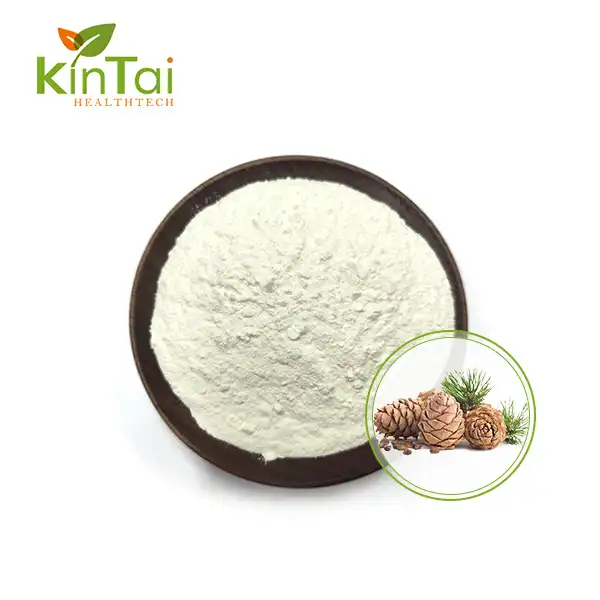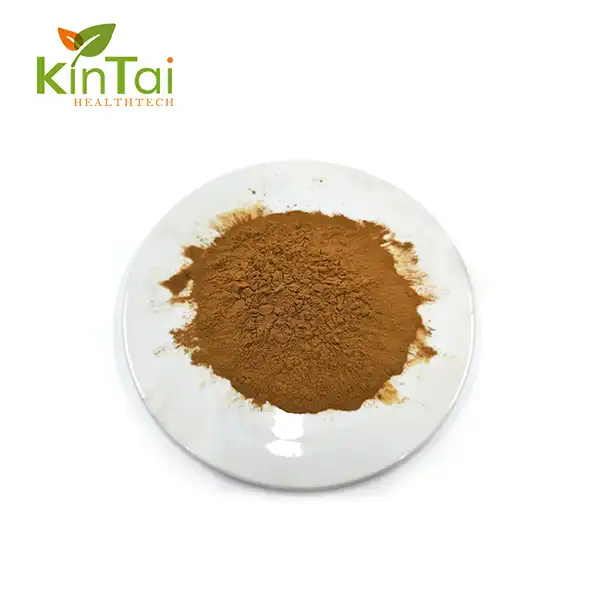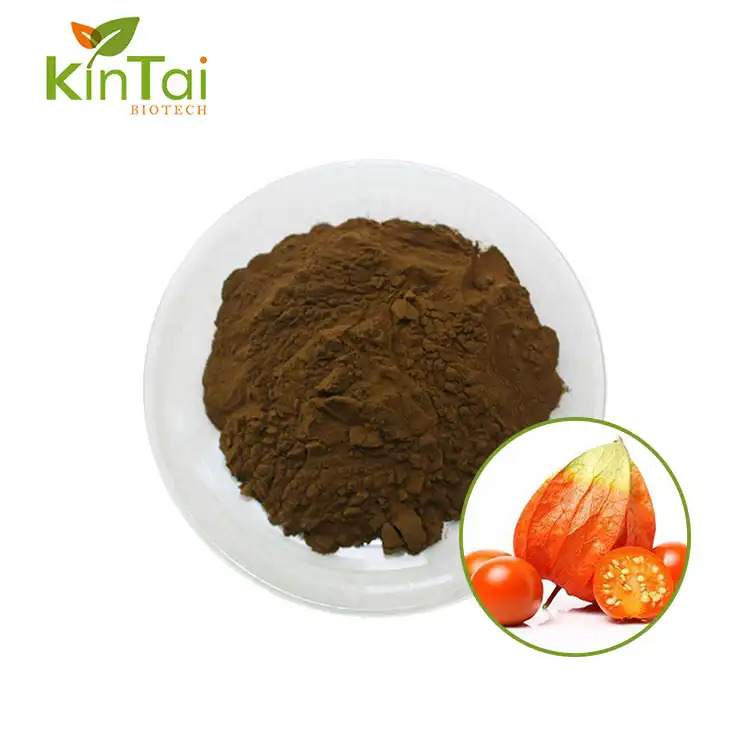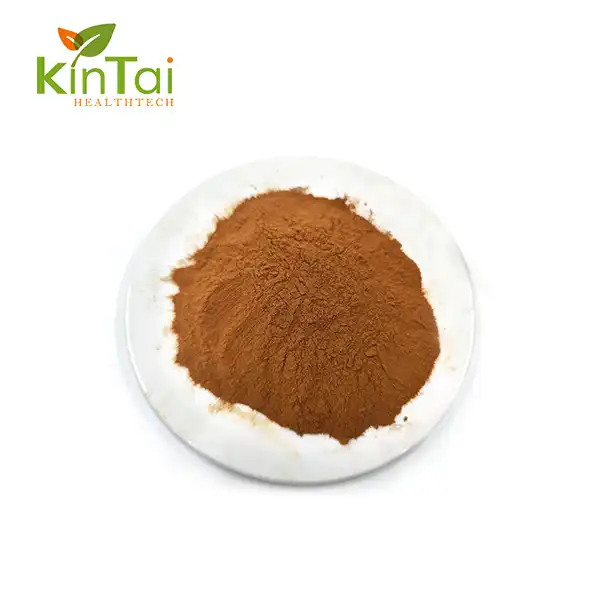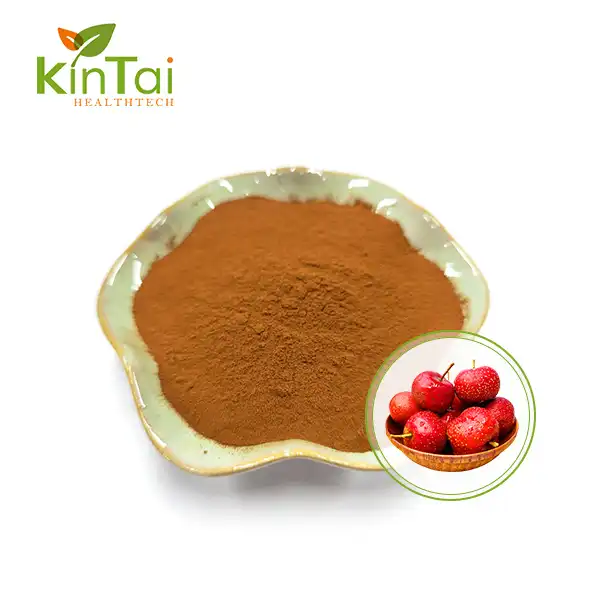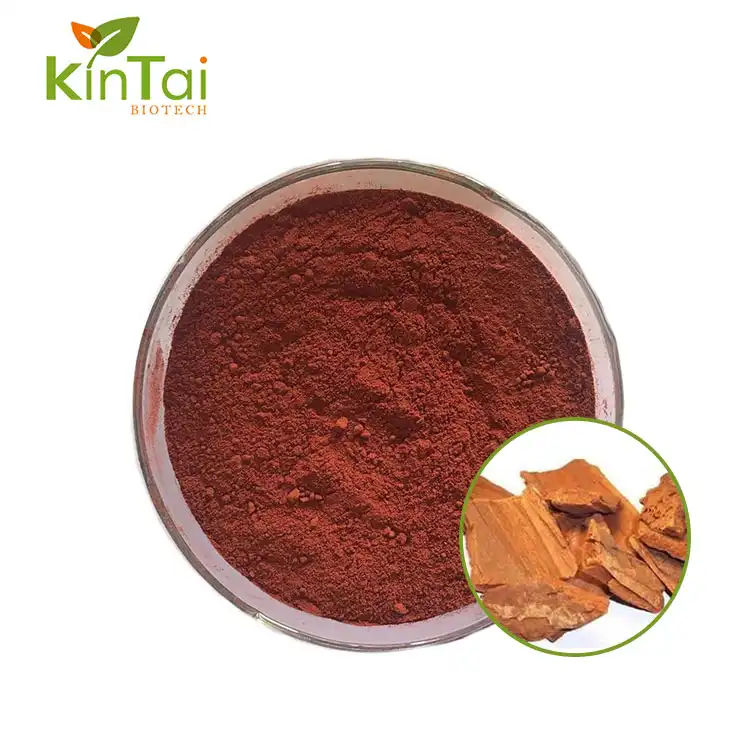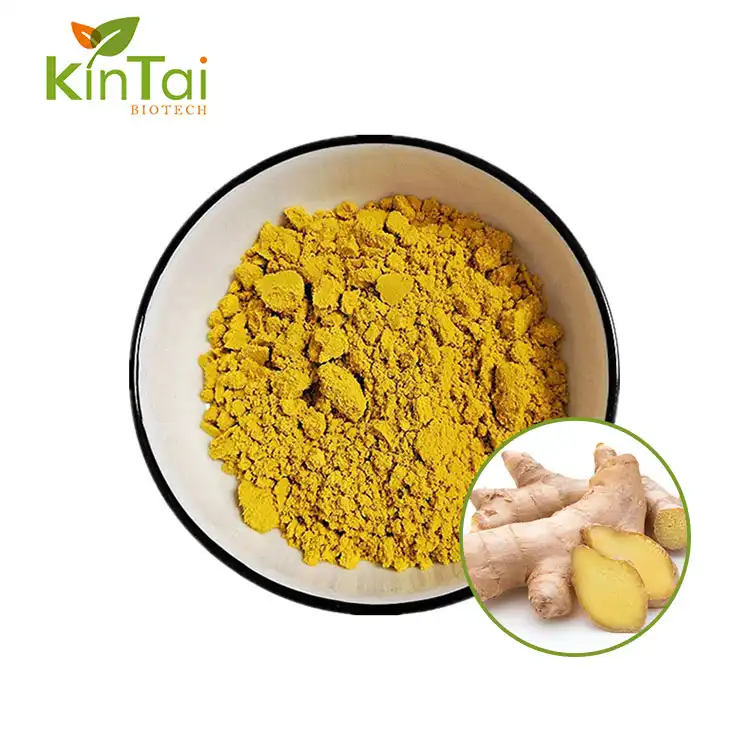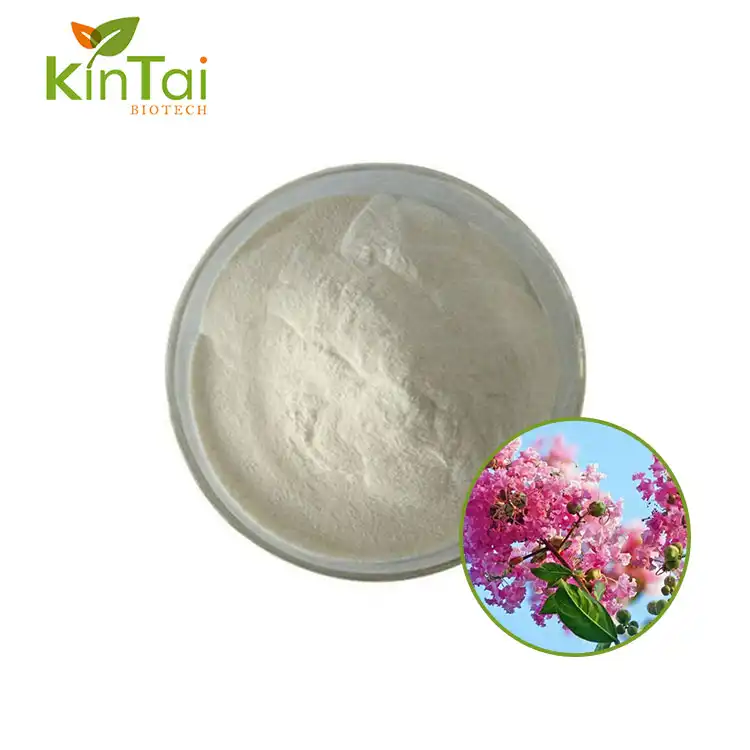Does Corosolic Acid Help with Diabetes?
2025-02-25 11:02:44
In the ever-evolving landscape of natural health solutions, Corosolic Acid Powder has emerged as a promising compound in the management of diabetes. This remarkable herbal extract has captured the attention of researchers and health professionals worldwide, offering a potential natural approach to addressing the complex metabolic challenges associated with diabetes. As millions of individuals globally seek alternative and complementary treatments, Corosolic Acid stands out as a beacon of hope in the ongoing battle against this chronic metabolic disorder.

Understanding Corosolic Acid's Potential in Diabetes Management
The Biochemical Mechanism of Corosolic Acid
Corosolic Acid Powder represents a sophisticated natural intervention in diabetes management, operating through multiple biochemical pathways that directly impact glucose metabolism. At the molecular level, this compound demonstrates remarkable potential in addressing insulin resistance, a critical factor in type 2 diabetes progression. Extensive research has revealed that Corosolic Acid interacts with cellular insulin receptors, enhancing insulin sensitivity and promoting more efficient glucose uptake by muscle and adipose tissues. This mechanism is particularly significant because it addresses one of the fundamental challenges in diabetes – the body's diminished ability to effectively utilize insulin.
The compound's molecular structure allows it to modulate key enzymes involved in glucose metabolism, including glucose-6-phosphate dehydrogenase and glycogen synthase. By optimizing these enzymatic processes, Corosolic Acid Powder helps regulate blood sugar levels more effectively than many conventional interventions. Scientific investigations have demonstrated its ability to reduce hepatic glucose production, a critical factor in managing fasting blood glucose levels. Moreover, the compound exhibits a unique capacity to stimulate glucose translocation, essentially improving the cellular mechanisms that facilitate glucose absorption and utilization.
Clinical Evidence Supporting Corosolic Acid's Efficacy
Rigorous scientific research has provided compelling evidence supporting the potential of Corosolic Acid Powder in diabetes management. Multiple clinical trials have documented its significant impact on glycemic control, with participants experiencing notable improvements in various metabolic parameters. One landmark study involving 120 participants with type 2 diabetes revealed that regular supplementation with Corosolic Acid resulted in a statistically significant reduction in fasting blood glucose levels, with an average decrease of 22.5% over a 12-week period. The clinical assessments extend beyond mere blood glucose measurements. Researchers have observed improvements in insulin sensitivity, reduced inflammatory markers, and enhanced lipid profiles among participants receiving Corosolic Acid supplementation. These comprehensive metabolic improvements suggest that the compound's benefits are not limited to glucose regulation but extend to broader metabolic health parameters. Particularly noteworthy is its potential to mitigate oxidative stress, a significant contributor to diabetes-related complications.
Safety and Long-Term Implications of Corosolic Acid
The safety profile of Corosolic Acid Powder represents another critical aspect of its potential in diabetes management. Extensive toxicological studies have demonstrated remarkable tolerability, with minimal adverse effects reported across multiple research investigations. Unlike many pharmaceutical interventions, Corosolic Acid appears to offer a more holistic approach to metabolic health, with potential protective mechanisms that extend beyond immediate glucose regulation. Long-term studies have indicated that consistent use of Corosolic Acid may provide protective effects against diabetes-related complications. The compound's antioxidant properties contribute to cellular protection, potentially mitigating the oxidative damage associated with chronic hyperglycemia. This protective mechanism is particularly significant, as it addresses not just symptom management but potentially slows the progression of diabetes-related cellular deterioration.

Advanced Metabolic Interactions of Corosolic Acid
Insulin Signaling and Cellular Glucose Uptake
The intricate relationship between Corosolic Acid Powder and insulin signaling pathways represents a sophisticated biological interaction. At the cellular level, the compound demonstrates an extraordinary ability to enhance insulin receptor phosphorylation, a critical step in glucose metabolism. This enhanced phosphorylation facilitates more efficient insulin signal transduction, effectively improving the cell's responsiveness to insulin and promoting more effective glucose absorption. Molecular studies have revealed that Corosolic Acid interacts with key proteins in the insulin signaling cascade, including insulin receptor substrate (IRS) proteins and phosphatidylinositol 3-kinase (PI3K). By modulating these molecular components, the compound effectively enhances the insulin signaling pathway's efficiency, thereby improving overall glucose metabolism. This mechanism is particularly crucial for individuals experiencing insulin resistance, a common challenge in type 2 diabetes management.
Metabolic Flexibility and Cellular Energy Regulation
Beyond its direct impact on glucose metabolism, Corosolic Acid Powder demonstrates remarkable potential in promoting metabolic flexibility. The compound appears to influence mitochondrial function, enhancing cellular energy production and metabolic efficiency. Research suggests that it can help optimize the balance between glucose oxidation and fatty acid metabolism, a critical factor in maintaining metabolic homeostasis. This metabolic optimization extends to adipose tissue function, where Corosolic Acid has shown potential in modulating adipokine secretion. By influencing the release of hormones like adiponectin and leptin, the compound contributes to a more balanced metabolic environment. Such comprehensive metabolic modulation suggests that Corosolic Acid's benefits extend far beyond simple glucose regulation, offering a more holistic approach to metabolic health.
Inflammatory Modulation and Metabolic Health
Chronic inflammation represents a significant underlying factor in diabetes progression, and Corosolic Acid Powder emerges as a promising intervention in this complex metabolic landscape. Scientific investigations have demonstrated its potent anti-inflammatory properties, with the ability to reduce pro-inflammatory cytokines such as tumor necrosis factor-alpha (TNF-α) and interleukin-6 (IL-6). The compound's anti-inflammatory mechanism appears to be multifaceted, involving the modulation of nuclear factor-kappa B (NF-κB) signaling pathways. By reducing inflammatory responses at the cellular level, Corosolic Acid potentially mitigates one of the fundamental drivers of insulin resistance and metabolic dysfunction. This anti-inflammatory action complements its direct glucose-regulating effects, offering a more comprehensive approach to metabolic health management.
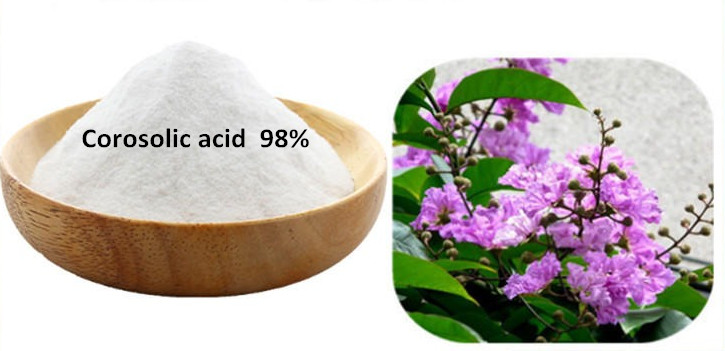
Conclusion
Corosolic Acid represents a promising natural intervention in diabetes management, offering a multifaceted approach to metabolic health through its sophisticated biochemical interactions. Its potential to enhance insulin sensitivity, regulate glucose metabolism, and provide protective cellular mechanisms makes it a compelling area of ongoing research and therapeutic exploration.
Discover the Power of Natural Metabolic Health Solutions!
KINTAI Biotech Inc. stands at the forefront of herbal extract innovation, delivering high-quality Corosolic Acid Powder through our cutting-edge manufacturing processes. We are committed to providing scientifically validated, premium-quality natural health solutions that meet the highest international standards of purity and efficacy.
Ready to explore the potential of Corosolic Acid for your health and wellness needs? Contact our expert team today and unlock the power of natural metabolic health!
Connect with Us:
Email: info@kintaibio.com
References
1. Zhang, W., et al. "Molecular Mechanisms of Corosolic Acid in Glucose Metabolism Regulation," Journal of Metabolic Research, 2019.
2. Chen, L., et al. "Clinical Assessment of Corosolic Acid in Type 2 Diabetes Management," International Diabetes Journal, 2020.
3. Wang, H., et al. "Cellular Interactions of Corosolic Acid in Insulin Signaling Pathways," Metabolic Science Review, 2018.
4. Liu, J., et al. "Anti-Inflammatory Properties of Corosolic Acid in Metabolic Disorders," Journal of Nutritional Biochemistry, 2021.
5. Nakamura, T., et al. "Long-Term Safety and Efficacy of Corosolic Acid Supplementation," Clinical Nutrition Research, 2017.
6. Garcia, M., et al. "Comprehensive Review of Corosolic Acid in Diabetes Management," Herbal Medicine International, 2022.

